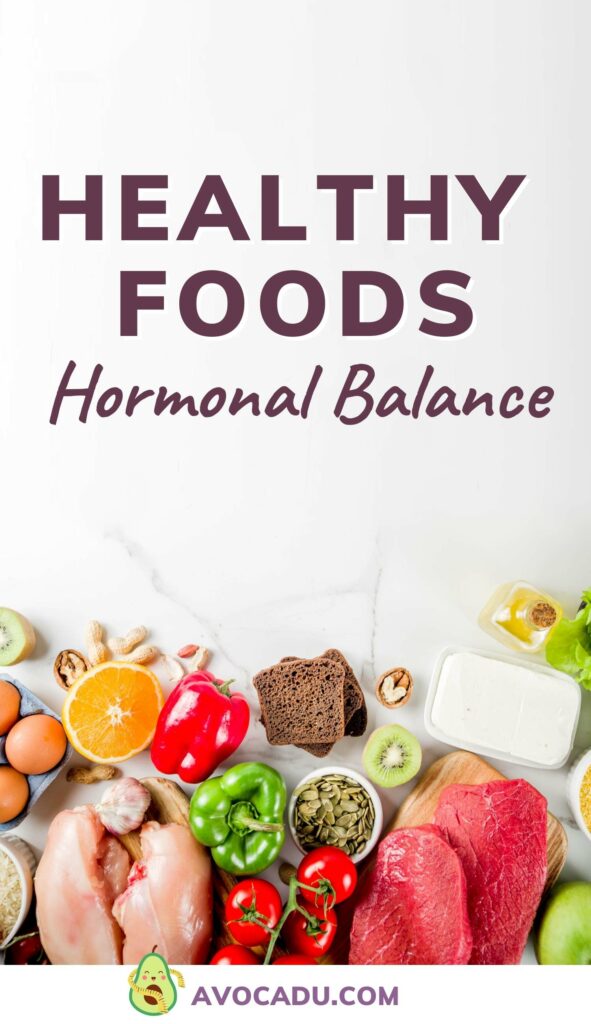Best Foods for Hormonal Balance: Supporting Women’s Natural Rhythms
Today, we’re chatting about something close to all of our hearts (and bodies): our hormones.
As women, our hormones act as the conductors of our bodies, influencing everything from our mood swings to the regularity of our menstrual cycles.
And guess what? One powerful influencer of our hormonal symphony is our diet! Today, we’ll explore the best foods for hormonal balance.
Plus, we’ll enlighten you on the worst foods for healthy hormones, so you’ll know what to avoid!
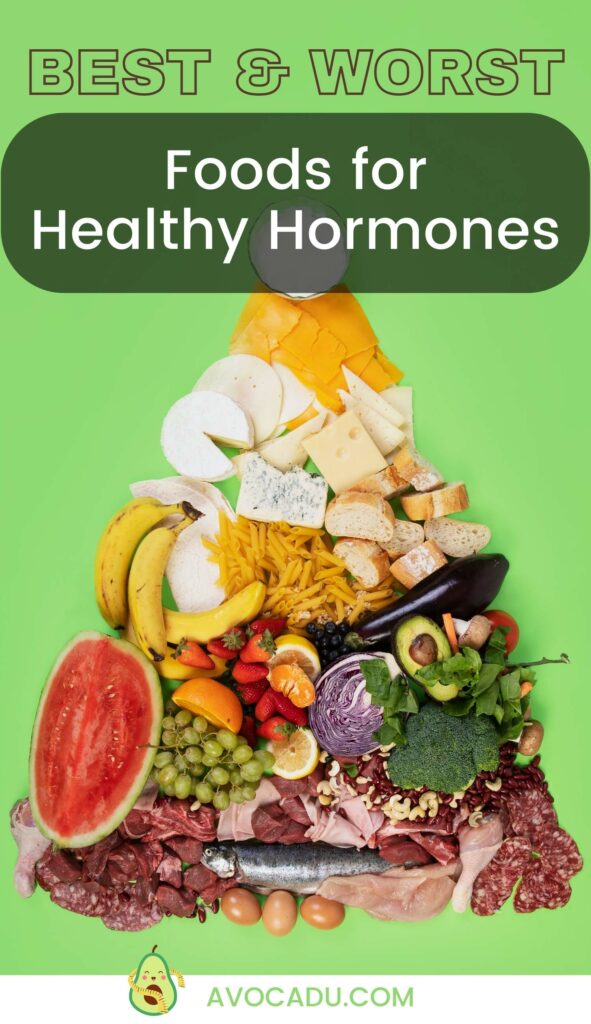
This post may contain affiliate links, which helps keep this content free. Please read our disclosure for more info.
Understanding Hormones
Let’s take a moment to really understand hormones. Picture them as the backstage crew at a concert – they’re usually out of sight, but they’re running the whole show.
Hormones are bio-chemical messengers that our bodies use to keep things running smoothly.
Here are a few key players:
Insulin: This hormone is like the body’s traffic cop. Produced in the pancreas, it controls how your body uses or stores glucose and fat.
It’s crucial for managing your energy supplies, so when you eat, insulin is released to help move the sugars from your food into your cells for later use.
Too much sugar, though, can make this traffic cop a bit overwhelmed and lead to problems like insulin resistance!
Estrogen and Progesterone: These are the leading ladies in the story of women’s hormones. They’re largely responsible for regulating your menstrual cycle and fertility.
Estrogen is a vital player in the first half of your cycle, building up the lining of your uterus and getting an egg ready for potential fertilization.
Progesterone, on the other hand, takes the stage in the second half of your cycle, preparing your body for a potential pregnancy.
Cortisol: Think of this one as your body’s alarm system. Cortisol is released when you’re under stress, getting your body ready for a ‘fight or flight’ situation.
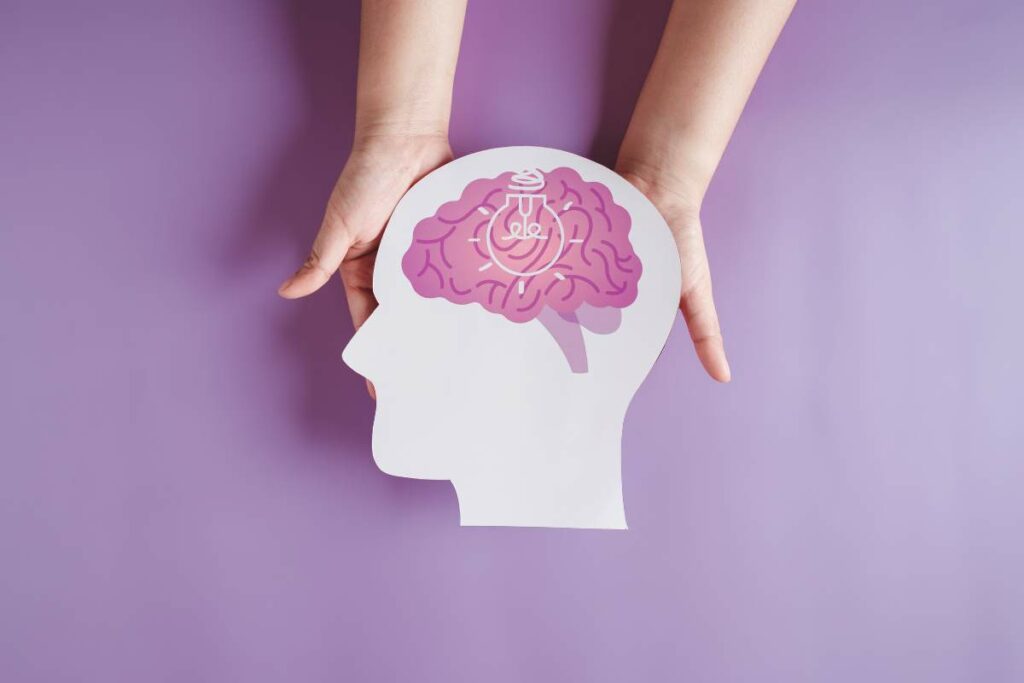
It raises your heart rate, increases your blood sugar, and suppresses non-emergency bodily functions like digestion and reproduction.
While cortisol is vital for responding to stressful situations, consistently high levels can lead to issues like weight gain, anxiety, and menstrual irregularities.
Thyroid Hormones (T3 and T4): These hormones are like your body’s thermostat. They regulate your body’s metabolism – how quickly you burn calories and how fast your heart beats.
An imbalance in your thyroid hormones can lead to weight changes, fatigue, or feelings of being too hot or too cold.
Understanding these hormones is key because when they’re in balance, they create harmony in our bodies. However, when one or more hormones are out of whack, it can throw off the whole system.
And that’s where our diet comes in! The food we eat can influence the production, function, and elimination of these hormones, which is why it’s so important to eat a balanced, nutritious diet.
The Impact of Diet on Hormones
Here’s where things get really interesting. The food we eat doesn’t just fill us up; it also interacts with our hormones, influencing their production and function. Isn’t that something?
Impact of Sugar and Refined Carbs: These foods can cause insulin levels to spike and then crash. This roller coaster ride can lead to energy crashes, mood swings, and over time, might even lead to insulin resistance.
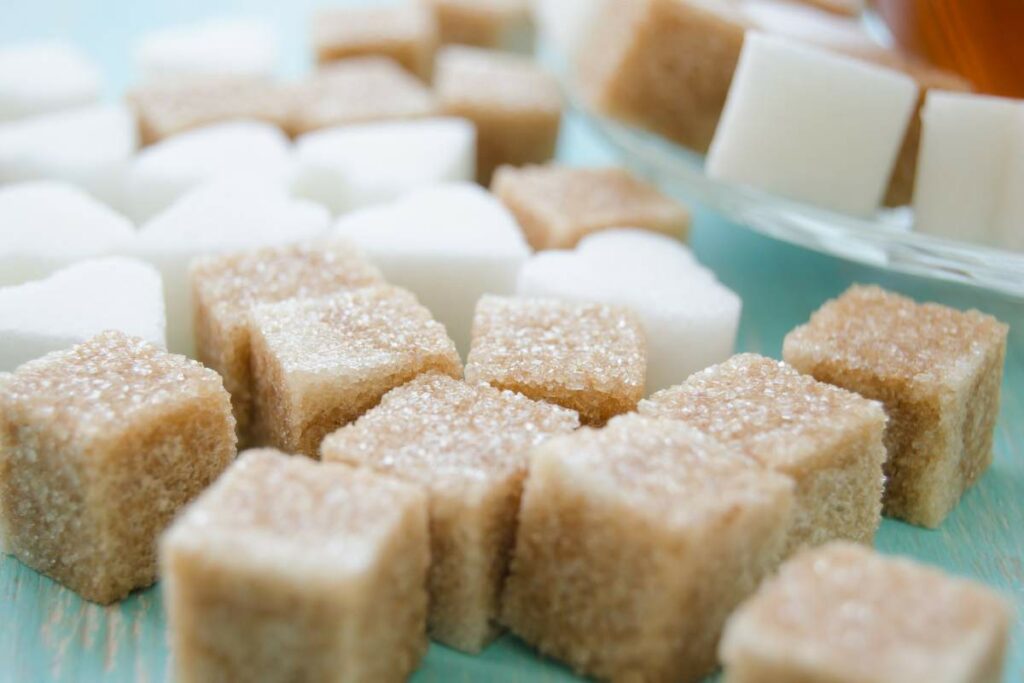
That’s when the cells stop responding properly to insulin, which can pave the way to more serious health issues like type 2 diabetes.
Effects of Fatty Foods: The type of fat matters a lot when it comes to hormones. Trans fats and excessive saturated fats can cause inflammation, which disrupts hormone signals.
On the flip side, healthy fats found in foods like avocados, nuts, and seeds are essential for the production of hormones, especially our sex hormones, like estrogen and progesterone.
Protein and Hormones: Dietary protein provides the essential amino acids that our bodies can’t make on their own.
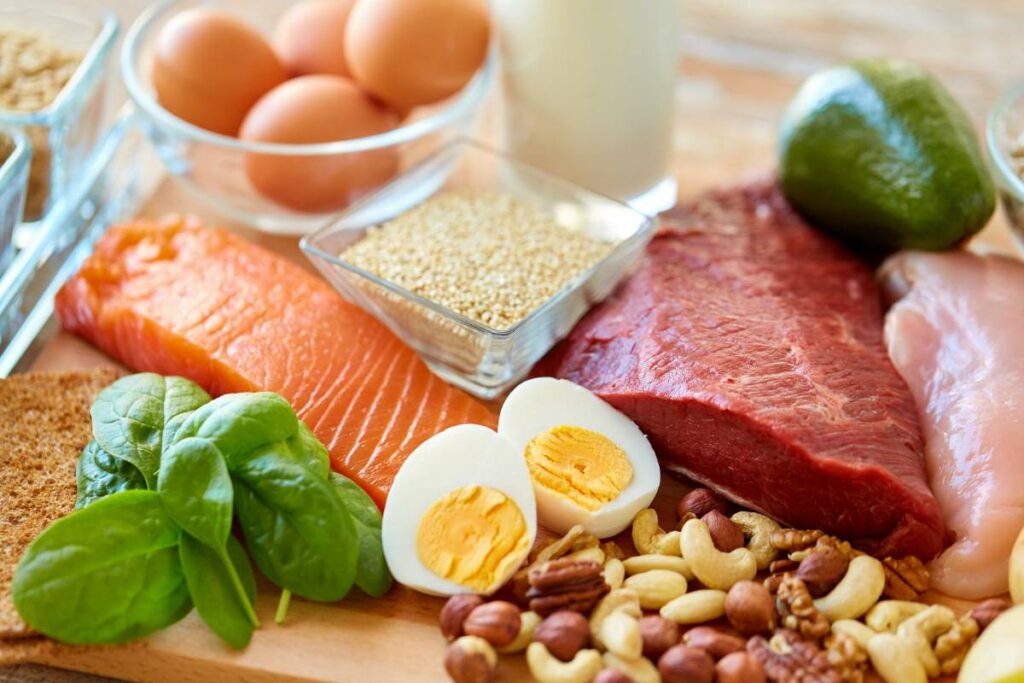
These amino acids are the building blocks for everything in the body, including hormones. Not getting enough protein can disrupt hormone production.
Impact of Fiber: Dietary fiber slows the absorption of sugar into your bloodstream, which helps regulate insulin.
Plus, certain types of fiber can help remove excess estrogen from the body, supporting a healthy balance of sex hormones.
Effects of Alcohol and Caffeine: Both of these can have powerful effects on the endocrine system. For instance, too much caffeine can increase cortisol levels, making you feel stressed and anxious.
Alcohol, on the other hand, can affect the liver’s ability to metabolize hormones, which might disrupt their balance.
When we choose foods that support our hormones, it can help keep everything in check. That means aiming for a mix of complex carbs, healthy fats, lean proteins, and lots of fruits and veggies.
Don’t forget though, it’s all about balance – occasional indulgences are a part of life, just try not to let them become the norm.
Best Foods for Hormonal Balance
So, let’s get to the good stuff – what should we eat to support our hormonal health?
Complex Carbohydrates: Here’s where you can really embrace variety! Complex carbs like whole grains (think quinoa, brown rice, oats), legumes (like chickpeas, lentils, black beans), and starchy veggies (such as sweet potatoes, pumpkin, butternut squash) are stellar choices.
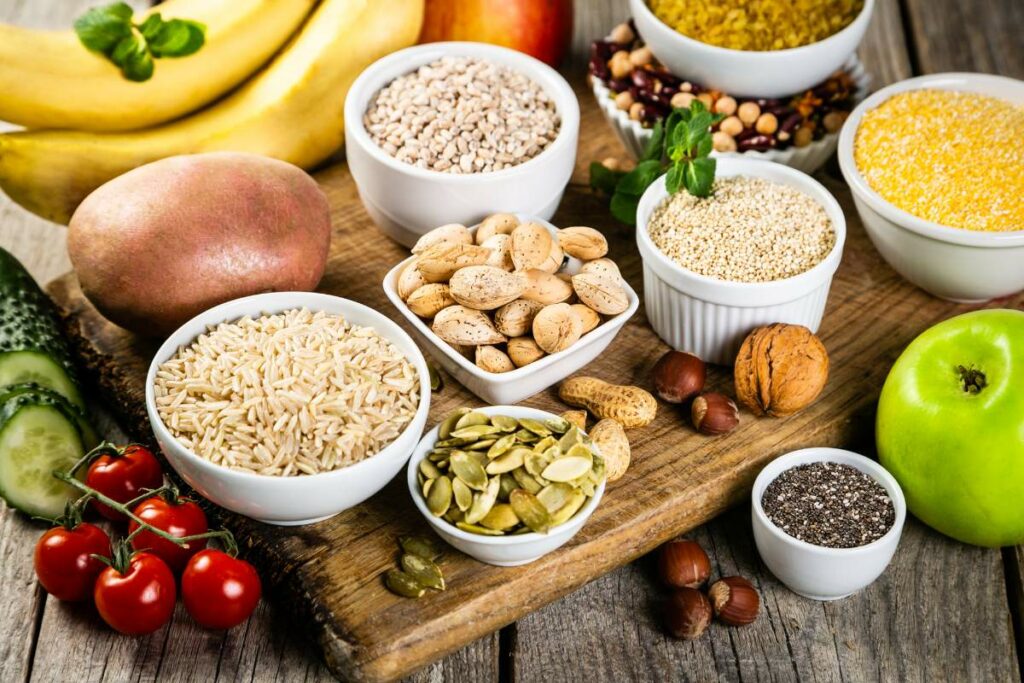
Why? They provide steady energy as they’re digested slowly, helping to maintain stable insulin levels and prevent energy crashes.
Plus, they’re usually high in fiber, which we already know is great for hormone health!
Healthy Fats: Avocados, nuts, seeds, and oily fish like salmon and mackerel are not just tasty, they’re hormone-friendly, too.
These foods are rich in essential fatty acids like omega-3 and omega-6, which are key components of cell membranes and are necessary for the production of hormones.
For instance, omega-3 fats can help maintain healthy levels of progesterone and estrogen, supporting reproductive health.
Protein-rich foods: Protein is vital for hormone production. Lean meats like chicken and turkey, fish, eggs, tofu, and Greek yogurt are all great options.
They provide the amino acids necessary for the creation of hormones. Plus, protein helps regulate ghrelin (the hunger hormone) and can keep you feeling satisfied after meals.
High-fiber foods: Fiber is a hormone-helper for a couple of reasons. First, it helps regulate insulin by slowing the absorption of sugar into your bloodstream.
Second, it aids in digestion and can help remove excess estrogen from the body, supporting a balance of sex hormones. Foods like fruits, vegetables, legumes, and whole grains are all rich in fiber.
Antioxidant-rich foods: These are your inflammation fighters! Foods like berries, dark chocolate, artichokes, and even green tea are packed with antioxidants, which help combat inflammation in the body.
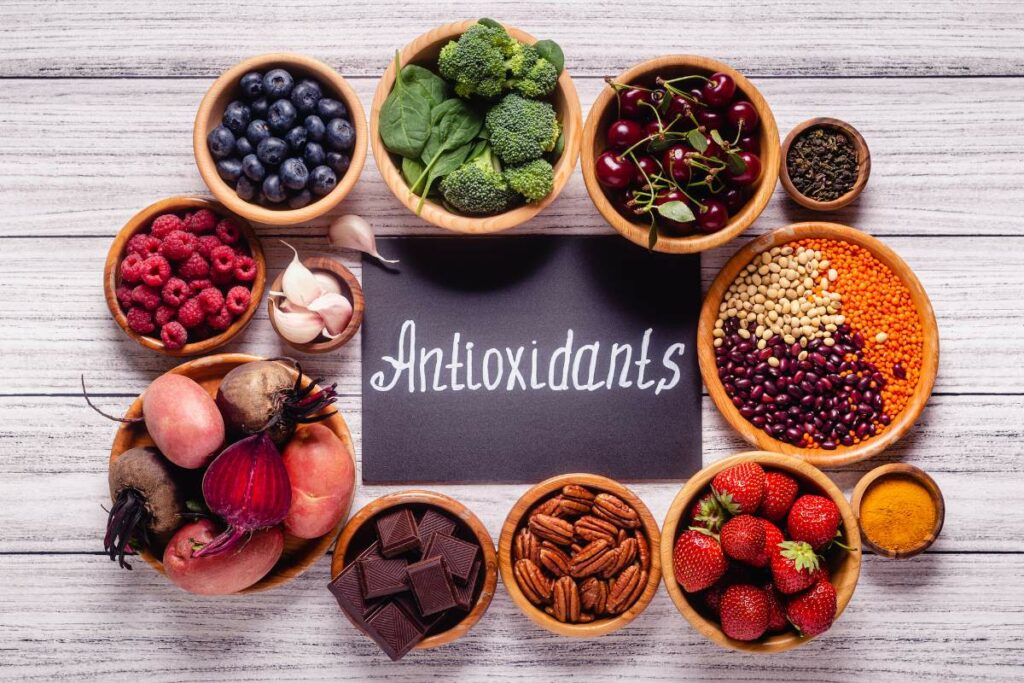
Since chronic inflammation can disrupt hormonal balance and lead to various health problems, including insulin resistance and hormone-sensitive cancers, including these foods in your diet can support overall hormonal health.
Incorporating these foods into your daily meals can do wonders for your hormone health. Of course, everyone is unique, so listen to your body and adjust your diet as needed.
Foods to Avoid for Hormonal Balance
Just as there are foods that support our hormones, there are also those that might throw them off balance. Here’s what you might want to watch out for:
Sugary Foods: You know those delicious doughnuts or that comforting can of soda? They might be doing your hormones more harm than good.

These high-sugar foods cause your blood sugar to spike, which in turn causes a surge in insulin. This rollercoaster of high and low blood sugar levels can lead to insulin resistance over time.
Plus, the sudden rush of energy followed by a crash can mess with your mood and energy levels.
Related Article: Sugar Detox: Kicking The Sweet Temptation To The Curb!
Processed Foods: The problem with overly processed foods is that they often come loaded with hidden sugars, unhealthy fats, and a host of artificial additives.
These can lead to inflammation, which can disrupt hormone balance. Think about foods like packaged snacks, instant noodles, and fast food.
High-Caffeine Foods and Drinks: A little caffeine can give you a much-needed energy boost, but too much can increase cortisol levels, the stress hormone.
This might leave you feeling anxious and disrupt your sleep. This includes foods and drinks like coffee, energy drinks, and even some teas.
Alcohol: While a glass of wine every now and then can be a part of a balanced lifestyle, too much alcohol can throw your hormones out of whack.

It can affect your liver’s ability to break down and remove excess hormones from your body, and may also raise cortisol levels, leading to increased stress.
Trans Fats: These types of fats, often found in fried foods, baked goods, and processed snack foods, can lead to inflammation and insulin resistance, which in turn can disrupt your hormonal balance.
Soy: This might be a surprising one, but while soy has many health benefits, it can also mimic estrogen in your body. This can be an issue for some women, especially those who are estrogen dominant.
So, you might want to keep an eye on your soy intake, especially if you’re eating a lot of soy-based products like tofu, soy milk, or edamame.
The Role of Lifestyle in Hormonal Balance
Our hormones don’t exist in a vacuum; they’re affected by every part of our lives, from the food we eat to the way we live our day-to-day lives. Here’s a look at some key lifestyle factors that play a role in hormonal balance:
Stress Management: We’ve all had those days when we’re under pressure and stress seems to be at every turn. But did you know this can affect your hormone balance?
When we’re stressed, our bodies produce more cortisol, which, as we’ve mentioned, is our ‘fight or flight’ hormone.
Elevated cortisol levels can lead to a variety of health problems, including insomnia, weight gain, and even hormone-related conditions like polycystic ovary syndrome (PCOS).
That’s why it’s so important to find ways to manage stress, whether it’s through yoga, meditation, deep breathing, or simply taking time for activities you enjoy.
Physical Activity: Regular exercise is a powerful tool for hormonal health. It can help regulate insulin, lower cortisol levels, and even boost mood-lifting hormones like serotonin.
Plus, certain exercises can stimulate the production of human growth hormone, which is key for cellular regeneration and metabolism.
Whether it’s a brisk walk, a sweaty gym session, or a relaxing yoga class, find a form of physical activity that you love and make it a regular part of your routine.
Adequate Sleep: Never underestimate the power of a good night’s sleep! Sleep plays a critical role in hormone production, including hormones that regulate growth, stress, and even our appetite.

Lack of sleep can lead to imbalances that result in increased hunger and cravings, higher stress levels, and even lower metabolism.
Aim for 7-9 hours of quality sleep per night, and try to keep a regular sleep schedule for best results.
Hydration: Drinking enough water is also essential for hormone health. Water aids in digestion, nutrient absorption, and detoxification, all of which are essential for optimal hormone function.
Plus, staying well-hydrated can help control hunger and keep your metabolism functioning well.
As you see, maintaining hormonal balance isn’t just about what you eat, but how you live.
Combining a hormone-friendly diet with a balanced lifestyle is a powerful way to support your body’s natural rhythms and promote overall health.
Achieving Hormonal Harmony: Embracing a Balanced Lifestyle
Now you have a deeper understanding of how your lifestyle choices can impact your hormonal balance. It’s not just about the food you eat, but also about managing stress, staying active, getting quality sleep, and staying hydrated.
If you’re looking for a comprehensive program to support your journey towards hormonal balance, we recommend checking out the 21-Day Fat Loss Challenge.

This program not only provides guidance on nutrition and exercise for weight loss but also includes a bonus resource called “The Hormone Fix: Reset and Enhance Your 10 Most Crucial Hormones.” It’s designed to help you reset and optimize your hormonal health.
Click here to learn more about the 21-Day Fat Loss Challenge!
Achieving hormonal harmony is a continuous journey that requires mindful choices and self-care.
Embrace the power of nourishing foods, stress management techniques, regular physical activity, and adequate sleep to support your body’s natural rhythms.
By prioritizing your hormonal health, you’ll be on your way to a healthier, happier you.
